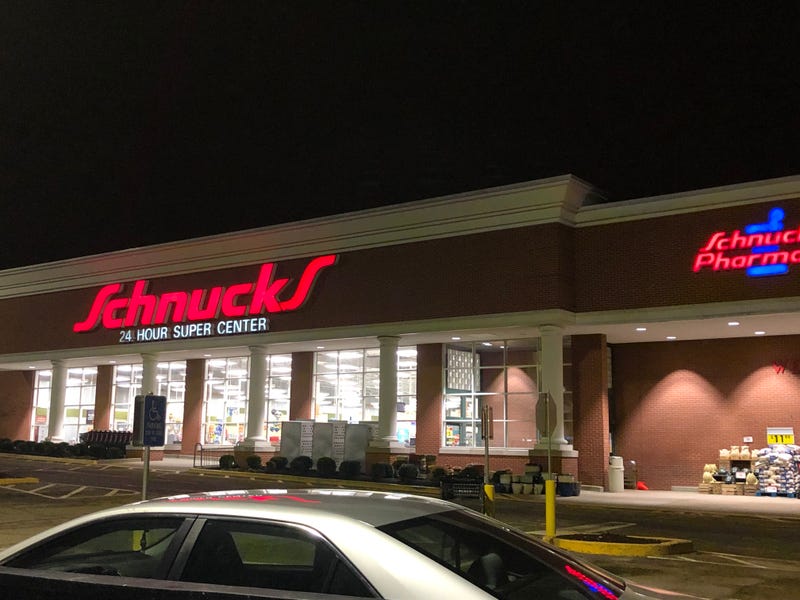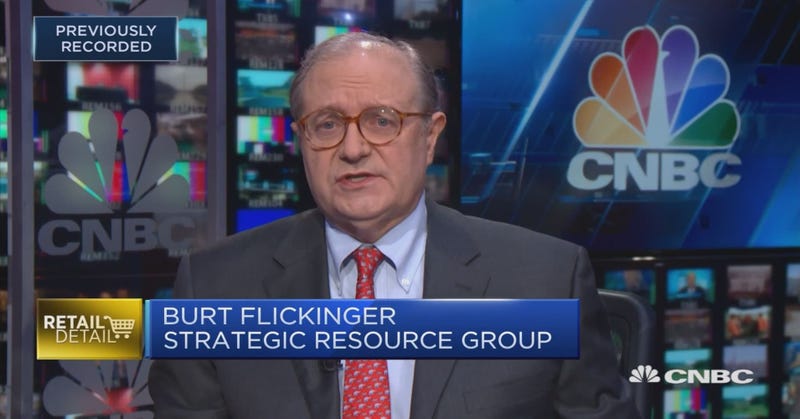
The Schnuck family's acquisition of Wisconsin-based Festival Foods is not a one-off move but likely "the first of many more" in a round of consolidation for regional grocers, renowned retail analyst Burt Flickinger says.
Flickinger, the Managing Director of consulting firm Strategic Resource Group, calls Schnucks "the proverbial last of the Mohicans."
He lays out to KMOX how the deal, which keeps the family in full ownership, positions the St. Louis-based holding company the 1939 Group to potentially snap up other independent grocers.

Flickinger says the stability of Schnucks' multi-generational family leadership is its key advantage against the "Walmarts of the world." He contrasts their four generations of management with other family-owned chains that have sold out. He says those chains often tended to be left with "a founder, a number of 'country club kids,' and some cousins who weren't working."
In an interview last week with KMOX's Michael Calhoun, Todd Schnuck confirmed the Skogen family of Wisconsin was interested in selling their companies to the Schnucks in large part because of family leadership.
Schnuck tells KMOX the deal was "all cash," as in the Schnuck family didn't exchange any equity with the Skogen family. The Business Journal adds that the Schnucks financed it with "a consortium of lenders" from the area.
"Michael, Schnucks still has a war chest," Flickinger says of their ability to further the expansion push and go after other chains.
He adds the deal sends a powerful signal to other family-owned firms. Festival was also part-owned by an ESOP (Employee Stock Ownership Plan), an arrangement not uncommon in the industry. "Because they were able to convince Festival ... that means many more will come to Schnucks to potentially sell," Flickinger predicts.
It sounds like the industry analysis publication Grocery Dive agrees, writing:
"The 1939 Group represents the latest example of a regional grocery ownership group expanding by assembling separately run supermarket chains under a centralized umbrella. Think of Raley’s, which created an entity known as The Raley’s Companies in 2021 that includes the Raley’s and Bashas’ grocery chains. Or the merger that year that brought Price Chopper/Market 32 and Tops Markets under a single ownership structure.
"There’s no way to know if the Schnuck family has additional expansion plans in mind, of course, but the 1939 Group would certainly facilitate its ability to build further economies of scale. Could a mini Albertsons or Kroger — with stores arranged under separate names but controlled by a central executive team — be in the works?"
Going aisle by aisle — or state by state
Flickinger expects Schnucks will stick with its disciplined strategy of expanding into "contiguous" or "shoulder" markets bordering its current footprint of Missouri, Illinois, Indiana, and Wisconsin. As a specific, but hypothetical, example of a chain that would fit this model, he said one "potentially could be Coborn's out of St. Cloud, Minnesota."
But could they overextend? He says not likely, describing Schnucks as "very conservative financially" and "very disciplined operationally."
Economic pressures facing consumers may offer another opportunity for grocers. Flickinger gives a cost comparison: feeding a family of four from a fast-food drive-thru can cost nearly $60, while a meal from Schnucks cooked with fresh food could be just "$10 or $12." He argues this shift back to the grocery store could save a family "$5,000 a year."
He also points to a quality advantage in Schnucks' fresh-cut meat program, which he contrasts with national competitors who use "modified atmospheric" gasses to extend shelf life.
KMOX asked how consolidation could impact another major, local grocer.
Flickinger assesses Dierbergs as a strong competitor with multiple paths forward, including remaining independent and continuing its strategy of "adding a new store every few to five years" or growing through its own purchase. He also describes Dierbergs as a "very attractive, crown jewel acquisition," though there's no indication of any interest in selling.
The success of companies like Schnucks is representing a larger shift in the grocery world. "The family-owned and operated with good professional management," Flickinger says, "they're going to be the future of the industry."
